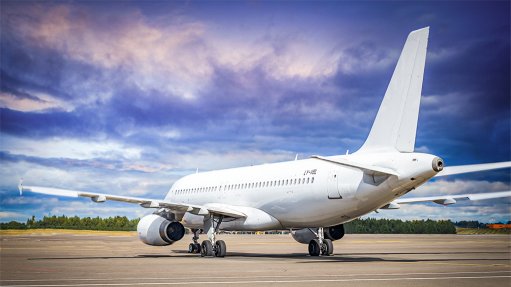
An Airbus A320-232 of Avion Express
Photo by: Avion Express
Major international aviation wet-leasing and charter services company Avion Express has highlighted the potential benefits to African airlines, recovering from the Covid-19 pandemic, of employing the option of wet-leasing airliners. Wet-leasing, more formally called aircraft, crew, maintenance and insurance (ACMI) provision, involves leasing an airliner, plus both flight and cabin crew, with the lessor also responsible for maintenance and paying insurance. The lessee airline is responsible for fuel and catering and other direct costs, plus airport fees, navigation charges and ground-handling fees. If the lessee wants to use its own cabin crew, that arrangement is called a damp lease. Wet, or ACMI, leases, are usually short-term contracts. (Leasing just an aircraft, with the lessee providing the crews, maintenance, insurance, and so on, is known as dry-leasing; these are usually longer-term contracts.)
With the re-opening of global air transport markets, many airlines around the world, including regional airlines, are facing increasing air travel demand while having insufficient numbers of aircraft, air crew and ground staff to meet this demand. Airliners that were grounded for extended periods of time need to undergo maintenance before they can resume operations. But maintenance companies and facilities are operating at full capacity, creating queues of aircraft awaiting their turn for attention and return to revenue service, and quite possibly driving up maintenance costs.
“ACMI leases have provided a safer bet when balanced against the costs of ordering new aircraft to address capacity deficits or training crews and airport staff to bounce back into service,” argues Avion Express. “In view of the above issues the choice is between spending money to have the resources ready and accessible when needed without any guarantee the system will remain operational or sourcing the resources through wet leases until when they can reliably provide or access such services from internal sources.”
With regard to Africa, the company cites the example of Cabo Verde Airlines, which maintained its capabilities by wet-leasing an Airbus A320-200, to cover for the unavailability of the carrier’s Boeing 737-700, which had to undergo scheduled maintenance. (This A320 was not leased from Avion Express but from another ACMI company, Airhub Aviation.) In general, ACMI contracts allow small airlines to secure an increasing share of the air travel market. This is especially relevant in Africa, where the market is very fragmented and there are few dominant carriers. But even for the region’s larger airlines, wet-leasing allows for the exploration of new markets and routes, as well as increasing their market shares.
“To all intents and purposes, ACMI solutions appears [sic] to be the only flexible way for African airlines to scale up, penetrate new markets where other carriers have failed or disappeared, and retain their share in existing markets,” affirms Avion Express. “Considering that the African aviation industry is largely underserved, operators must develop an aggressive strategy to capture the market and capitalise on available opportunities so airlines can plug in and leverage their flexible solutions to drive more growth.”
Lithuania-based Avion Express describes itself as the leading narrow-body airliner ACMI company in the world operating a fleet of Airbus A320-family airliners. (These are a mix of A320s and A321s.) It should not be confused with the South African courier services company with the same name.